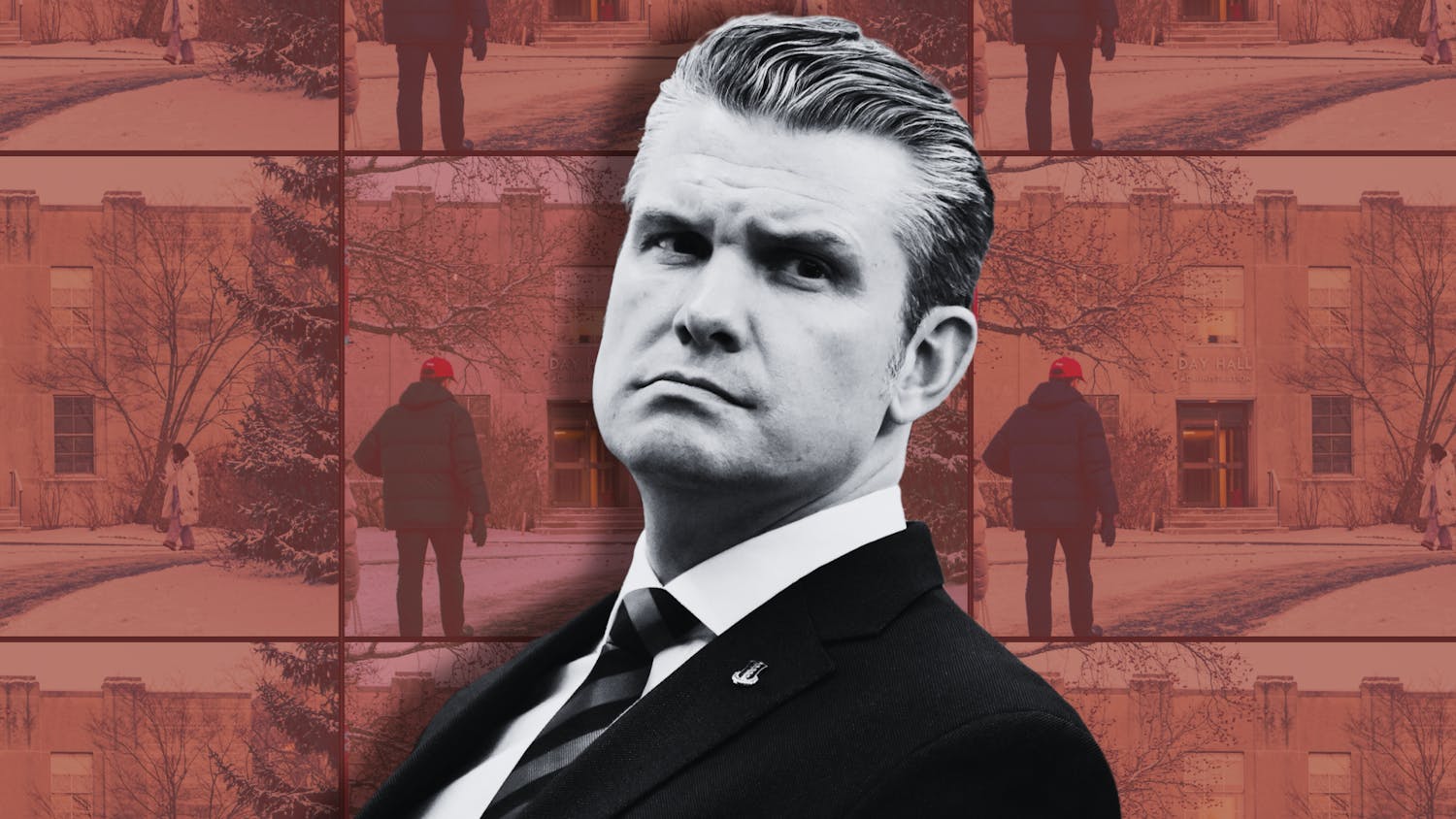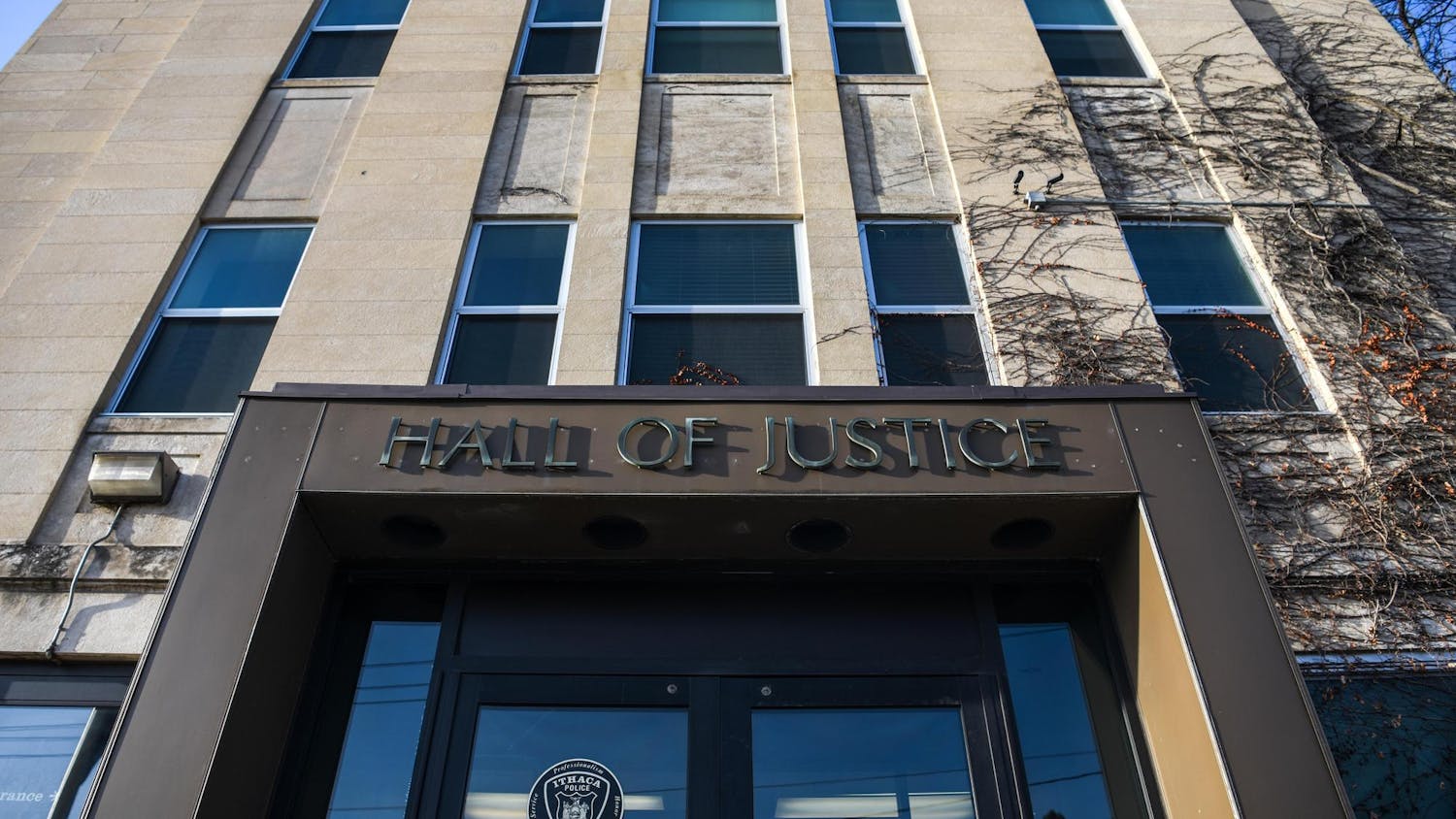Six-time Grammy-nominated and two-time Edison Award winner Chief Adjuah brought “stretch music” —his own jazz-rooted, culture-combining musical style — to campus on Friday evening. Adjuah performed for an audience of around 600 people in Bailey Hall as a part of the Cornell Concert Series with self-designed instruments, original pieces and discussions of culture and love.
Adjuah, formerly known as Christian Scott, hails from New Orleans and has worked with notable artists like Prince. He performed original African-jazz fusion compositions in a 90-minute performance at Bailey Hall. Accompanying Adjuah were his band members — bassist Ryoma Takenaga, drummer Joe Dyson, guitarist Andrew Renfroe and flutist Elena Pinderhughes.
In his pioneered music style, “stretch music,” Adjuah incorporates diverse rhythms, melodies and harmonies from his New Orleans heritage. For this music style, Adjuah designed and invented a custom-modified trumpet and a unique stringed instrument called the “Adjuah Bow,” which resembles both a harp and a guitar. The Adjuah Bow combines features of the n’goni, a West African string instrument, and the European harp.
“I’ve created [the Adjuah Bow] to show little children in places like Louisiana to learn musical instruments that have their ancestral beauty built into the template,” Adjuah said. “There are some people who will belittle children, telling them maybe that pop piece isn’t for [them] … and it made sense to create musical instruments that would allow people to go against that.”
Between songs, Adjuah explained each piece’s meaning. For example, he discussed his experience in writing a song about his grandmother’s childhood in Louisiana.
“This song is about a little girl who’s growing up in the Red River Valley,” Adjuah explained. “It’s a composition that was written about my grandmother, and the women that come from my community back home in New Orleans.”
Daniel Brous, a first-year Ph.D. student in computer science, said he appreciated learning about the origins of the pieces he heard. He said that Adjuah’s descriptions added “personability” and “relatability” to the music.
Zeke Lawrence ’25, who has been following Adjuah for years, said they valued Adjuah’s “focus on empathy and community-building” during his speeches between songs and found a deeper meaning in the music itself.
“Every type of music is inspired by histories of other people, and you can hear peoples’ inspirations by the things that they’re playing — the things that they’re thinking,” Lawrence said. “Every tune was so unique and so interesting.”
For some, Adjuah’s connection to his culture and the history of his music left a lasting impression. For Jamie Ardell ’28, Adjuah’s connection between his heritage and the instruments he created was especially impactful.
“I liked how he talked about how cultural influences have been altered over time by different people,” Ardell said. “He kind of brought back his heritage through [his crafted instruments] and was connecting his heritage in New Orleans directly to the music.”
Brous, a drummer himself, appreciated the instrumentalists’ technical skills on stage. He said that the “unique” cymbals and style that Dyson introduced were new to him, and that Pinderhughes’ flute playing was a highlight of the night.
“I’ve never seen the flute mesh so well with jazz,” Brous said. “It just felt like the flutist was a part of the whole and they were all totally in sync.”
For the entirety of Adjuah’s performance, he emphasized the significance of his culture through his music and highlighted the importance of the past that his Black ancestors faced in the American South.
“The people in Louisiana rebuilt their cultures because they held onto the skeletons of most old world traditions before it became America,” Adjuah said. “[The Adjuah Bow] acknowledges that history, and we’re going to continue with that in the next performances.”
Correction, March 10, 10:55 a.m.: A previous version of this article included the incorrect number of event attendees.
Update, Oct. 24, 3:30 p.m.: The article has been updated to remove a quote that The Sun could not verify.

Rowan Wallin is a member of the Class of 2027 in the Nolan School of Hotel Administration within the SC Johnson College of Business. He is a senior writer for the news department and can be reached at rwallin@cornellsun.com.

Ashley Lee is a member of the Class of 2028 in the School of Industrial and Labor Relations. She is a senior writer for the News department and can be reached at alee@cornellsun.com.











